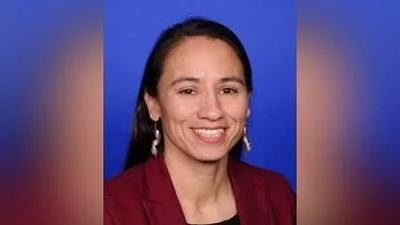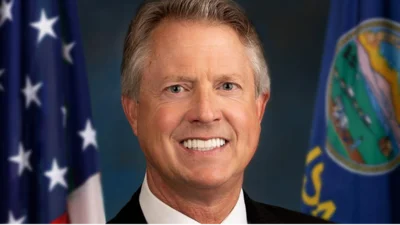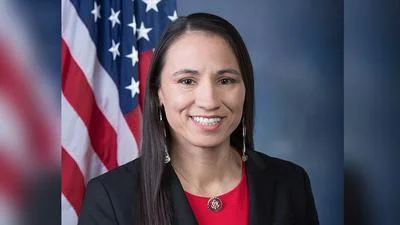Representative Sharice Davids | Representative Sharice Davids Official Website (https://davids.house.gov)
Representative Sharice Davids | Representative Sharice Davids Official Website (https://davids.house.gov)
May 12, 2023, Representative Sharice Davids announced two regional universities, Kansas State University and the University of Missouri-Kansas City, have received U.S. National Science Foundation (NSF) Engines program awards. These awards will help transform the region into a hub for advanced research and manufacturing, using our world-class educational institutions to boost Kansas' STEM workforce amid a national surge in manufacturing jobs. Funding for the awards was authorized by the Davids-supported CHIPS and Science Act, bipartisan legislation aimed at increasing America's global competitiveness by making more goods at home. Davids also advocated for the Kansas City metro area to receive this award.
- Regional universities receiving NSF Engines program awards include:
- University of Missouri-Kansas City (UMKC) – $999,878
- UMKC will utilize this award to enhance semiconductor manufacturing and workforce through partnerships with Kansas and Missouri businesses. Semiconductors, or chips, are necessary components of many everyday items including cars, smartphones, and medical devices, but only 12 percent are currently manufactured domestically - down from 37 percent in the 1990s. With this funding, UMKC plans to create more than 6,000 local jobs in the microelectronics industry and contribute to the domestic microelectronics workforce, which has an estimated shortfall of 130,000 workers by 2029. Read Davids' letter of support for UMKC's application here.
- Kansas State University (K-State) – $999,990
- K-State will utilize this award to support the growing biosecurity and biomanufacturing sectors in Kansas through research, workforce development, and collaboration with the local biotech business community. The award will build on the KC Animal Health Corridor—the single largest concentration of animal health and nutrition companies in the world, running directly through Johnson County—to attract more investment in Kansas' agriculture and science industries.
"UMKC is proud to take the lead on behalf of the University of Missouri System on this exciting effort to create a new industrial base in our region focused on computer chips and other microelectronics," said Mauli Agrawal, Chancellor, University of Missouri-Kansas City. "The potential for business formation and job creation is extraordinary, and we'll be working with partners throughout Missouri and Kansas to make it happen. We are especially thankful to Representative Davids who has been instrumental in creating a deeper understanding of the essence of the issues and needs surrounding this development."
"We are very excited to be leading this project around biosecurity, biodefense, and biomanufacturing, areas poised for enormous growth in our State and region.," said Dr. David Rosowsky, Vice President for Research, Kansas State University. "We are responding to these critical areas of national need and national security by investing in research and discovery, building partnerships with the private sector, creating pathways for commercialization, and committing to workforce development. The award of this NSF Engine recognizes the shared vision we have with our partners and allows us to take the next step in creating this bio-based ecosystem in the Great Plains."
Davids has made increasing domestic manufacturing, workforce pathways, and research opportunities in Kansas' Third District a priority. Alongside Senator Jerry Moran, she helped negotiate and pass the bipartisan CHIPS and Science Act, major manufacturing and supply legislation, last year. Since then, several companies have announced major investments in Kansas manufacturing, including Panasonic Energy, Integra, and EMP Shield.
Background
The NSF's first-ever NSF Engines program awards went to 44 teams spanning universities, nonprofits, businesses, and other organizations located in regions that have not fully benefited from the technology boom of the past decades. Each awardee team will receive up to $1 million for two years. These NSF Engines development awards will help organizations create connections and develop their local innovation ecosystem within two years to prepare a strong proposal for becoming a future NSF Engine, where they will have the opportunity to receive up to $160 million.
The CHIPS and Science Act, which authorized the funding for these awards:
- Lowers costs for American consumers – by making more critical semiconductor components in America, helping end the shortage of chips that have driven up the price of everything from cars to consumer goods.
- Creates 100,000 new, good-paying jobs nationwide – supporting local workforce development.
- Ends America's dependence on foreign manufacturers – bringing critical semiconductor manufacturing back home.
- Turbocharges American research and development – ensuring that the technologies of the future are made here at home.
Original source can be found here.






 Alerts Sign-up
Alerts Sign-up